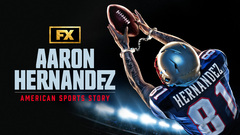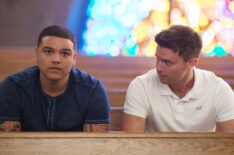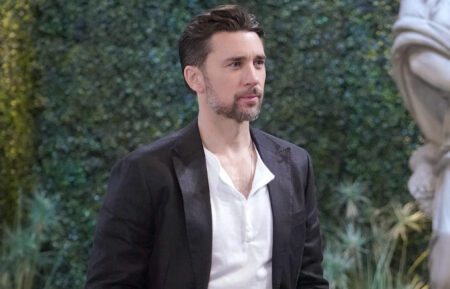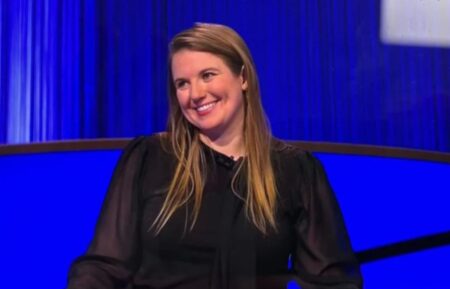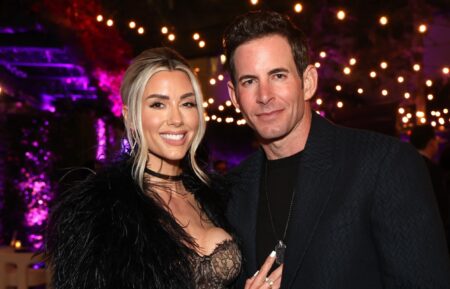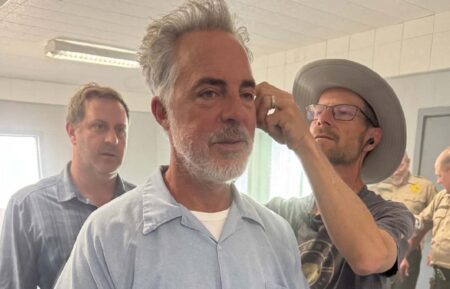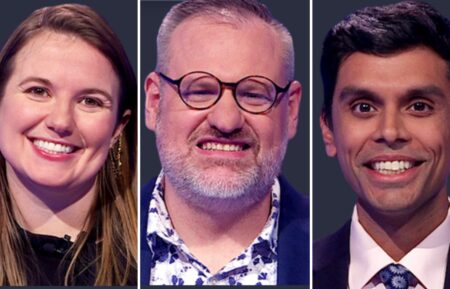Why ‘American Sports Story’ Star Thomas Sadoski Hopes Series Makes NFL Angry

Spoiler Alert
[Warning: The below contains MAJOR spoilers for American Sports Story: Aaron Hernandez, Season 1, Episode 4, “Birthday Money.”]
American Sports Story‘s latest episode took a look at the inner workings of the draft as Aaron Hernandez (Josh Rivera) was guided by sports agent Brian Murphy (Thomas Sadoski) through the process.
Initially resistant to Brian’s approach, Aaron is eventually won over by the man’s honest approach after other agents try recruiting him with flashy dinners and promises. While the draft pick wasn’t looking that promising, a few rounds in Aaron’s name was called, putting him in the path of the Patriots, the team he grew up rooting for in Connecticut. As Aaron’s story continues to unfold, TV Insider caught up with Sadoski to discuss his role as sports agent Brian Murphy.
The star opens up about portraying a real-life person, the positive influence he tried to make on the athlete, and the horrors of the NFL draft.
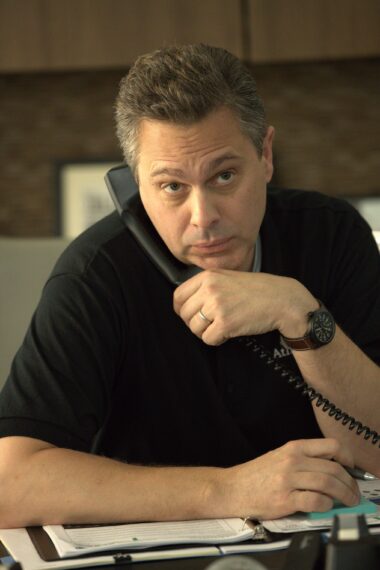
Eric Liebowitz/FX
You’re from Connecticut similar to Aaron Hernandez. Did you follow him or the Patriots as this story unfolded in real life?
Thomas Sadoski: As much as I’m not a huge Patriots fan, but because I grew up in New England [and all of my] family are from New England, I certainly keep tabs on the team. I definitely knew the story while it was happening. Most of us knew about Aaron Hernandez because he was one of the biggest, brightest, most extraordinary athletes, certainly, football players to come out of the state of Connecticut ever. So I definitely was aware of it while it was going on.
Did that connection draw you to this project and how much did you know or have to learn about Brian Murphy to take on this role?
Yeah, I didn’t know a whole lot about Brian when I signed on. I signed on because of Ryan [Murphy] and Stu Zuckerman. Those are two wonderful artists. I sort of feel like at this point in my life and at this point in my career, if I’m going to leave my kids and my wife to go to work, it’s going to be because I want to work with great people and Ryan and Stu are great people. It’s a weird thing when you’re playing somebody who actually exists, but [is not] particularly well known. You want to make sure that you’re being as honest and kind to these people — if they deserve it — as you possibly can be. And at the same time, this is a story being told through the lens of these artists. This isn’t like [my wife] Amanda [Seyfried] in The Dropout, you know what I mean? Where she was playing somebody who was so specific and well-known. I had a little bit more leeway in terms of that, which was nice.
Did you feel less pressure surrounding your performance then? Since fewer people are familiar with Brian Murphy as opposed to Bill Belichick and Aaron Hernandez.
Oh yeah, definitely. Like I said, I live with the woman who famously played Elizabeth Holmes. I saw what it took to do that. I’m really glad I didn’t do that. Not to say that I wouldn’t enjoy doing it, but, my god, it gave me a little bit more wiggle room. And it also allowed us as a creative team to lean into that part of the story a bit more where there is somebody in this world who is attempting to humanize [Aaron] and see him and do the best that they possibly can for him. And it does sort of bring up that extra little bit of heartbreak, which is that he just couldn’t quite get over the hump in terms of trusting somebody fully, and I think that having the space to create this person in the image that we wanted to, helped with that.

Eric Liebowitz/FX
What is something that surprised you about the role of a sports agent? Brian also seemed to be the most honest with Aaron at times.
I think that that has more to do with who Brian Murphy is as opposed to him being an agent. My experience in this industry dealing with agents and being around agents is that it is very rare when you find somebody who is willing to sit down and tell you the truth, but also completely invest in you regardless of whether or not you’re going to be the big cash cow for them because they actually believe in you. And I think in the world of [agents] and all sorts of representatives, that is vanishingly rare. So it was nice to play somebody who actually was doing their best to help this kid and still managed to completely miss it. And I think that’s part of the tragedy in this whole thing is that by the time the people came into his life who could make a difference, he was already so far down the road that there was no way that they were going to be able to make a difference.
The draft process is pretty extreme. What element shocked you the most?
I think that one of the real shocking standout moments of this show is the image of all of those young men — overwhelmingly young men of color — being lined up and poked and prodded. That image is arresting and it should be. I sort of knew all about the combine and I knew I had read about a lot of that stuff. I had seen articles about a lot of that stuff, but to see it up close and personal, even on a film set, was to have your jaw drop. And part of why I think it’s worthwhile to have [projects] like this made is because it shakes the foundation of this established way of doing things that are really twisted.
It is really alarming to watch.
I want the NFL to be pissed off at this show because it’s a multi-billion dollar industry that has historically taken a very long time to take responsibility for the well-being of its athletes, who even today there’s a lot of lips but not a lot of doing. The machismo thing that has been in the world of that sport for too long has really [allowed that]. I think it’s changing, but I don’t know that it’s necessarily changing fast enough.
In the context of this show, do you think Brian would have done even more to try and steer Aaron in a positive direction?
That’s my hope, and it’s my sense that I got from looking at the trial and reading articles. It’s my sense that he’s a good man at his core. I think also the reality of the situation is that at a certain point, you bump up against the fact that these are adult men that you are dealing with, and they’re going to do what they’re going to do. You can advise and attempt to inspire as much as you possibly can, but at the end of the day, the full weight responsibility for their actions and their choices lies with them. Now, in this specific situation and with this specific story… I think there were a number of adult men in Aaron Hernandez’s life when he was a child that failed him spectacularly, and they need to be held accountable for that.
Urban Meyer is somebody who comes to mind. His coach at Florida should not be leading young men ever again. It’s shameful that he cloaks himself as this sort of Sunday morning saint. I have actually a lot of sympathy for Brian Murphy in the sense that I feel like he tried to do the best job that he could, but at the end of the day, you are forced to deal with the fact that they’re going to make their choices.
American Sports Story: Aaron Hernandez, Tuesdays, 10/9c, FX (Next day on Hulu)
From TV Guide Magazine
How 'Countdown' Recruited Jensen Ackles to Go Full 'Die Hard'
Countdown boss Derek Haas talks creating the character around Ackles, and the cast teases the “Avengers”-like team of the crime thriller. Read the story now on TV Insider.
